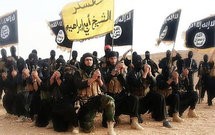 At an international conference held in Paris on September 15, 2014, leaders of over 30 countries participated to discuss ways of countering the Islamic State of Iraq and Syria (ISIS). Apart from Western countries such as US, France and UK, participants also included many Arab countries of the Middle East which are concerned by threats posed by the advances of ISIS. However, one country which was conspicuous of its absence at this conference was Iran. Although Iran considers ISIS a threat, it was not invited primarily because of the opposition from the US, which considered Iran’s participation in the conference as inappropriate.
At an international conference held in Paris on September 15, 2014, leaders of over 30 countries participated to discuss ways of countering the Islamic State of Iraq and Syria (ISIS). Apart from Western countries such as US, France and UK, participants also included many Arab countries of the Middle East which are concerned by threats posed by the advances of ISIS. However, one country which was conspicuous of its absence at this conference was Iran. Although Iran considers ISIS a threat, it was not invited primarily because of the opposition from the US, which considered Iran’s participation in the conference as inappropriate.
In his reaction to the US opposition to Iran’s participation, its Supreme Leader Ayatollah Ali Khamenei said that the Americans were lying. He claimed that it was Iran which rejected cooperation with the US in the first instance. According to him, in the early days of the ISIS crisis, the US had approached Iran through a communication between the diplomats of the two countries in Baghdad. However, he had rejected the US request doubting their intentions. Similarly, other Iranian leaders dismissed this conference, terming it as an event meant only for show.
Through news reports we know that the Iranian-backed Shiite militia in Iraq were instrumental in reversing the advances of ISIS in Amerli in Iraq. We know that during this operation the air support provided by the US played a crucial role. It is also reported that as soon as ISIS pronounced Caliphate, Iran sent its Qurds commander to Iraq to coordinate Iraqi efforts against ISIS. When there are evidences which show that Iran and the US are fighting for the same cause in the same territory against the same enemy, what is causing them to not openly declare their cooperation?
The primary reason for the reluctance of Iran and the US to announce mutual cooperation is related to Iran’s role in Syria. A part of the strategy to fight against the ISIS as pronounced by the US President Barack Obama involves strengthening those moderate opposition forces in Syria which are against both the ISIS and the current Syrian President Bashar al-Assad. However, since the regime of Assad is supported by Iran, it is finding difficult to support any such strategy which alienates its own ally. Iran is also under suspicion that the hidden agenda of the US strategy may be to ultimately topple the Assad regime. In Iran’s view, the best way to defeat the ISIS is by helping the states of Iraq and Syria. However, the US is opposed to the Assad regime and consequently, the Syrian issue proves as a major cause of Iran’s reluctance to come fully on board. This explains why the US is not announcing its willingness to cooperate with Iran. Further, despite recognising the ISIS as the common threat, both Iran and the US are not comfortable working with each other’s military.
It is pertinent to note that the global coalition underway includes many of the Arab countries with which Iran does not enjoy cordial relations. Consequently, Iran’s presence in the conference may have resulted in the abstention of prominent Arab countries such as Saudi Arabia and the United Arab Emirates. Finally, the ongoing nuclear negotiation between Iran and the P5+1 is another reason why the US is dismissive of cooperating with Iran on the ISIS issue. If Iran was included in the global coalition, it would have increased its leverage in bargaining the terms of the deal in its own favour, a prospect heavily opposed by Israel, a long term US ally in the region.
The current situation is gradually becoming similar to the one faced by Iran and the US in 2001 when they found themselves cooperating with each other to topple the Taliban in Afghanistan. Iran had provided crucial support to the US not only in defeating the Taliban but also in the formation of the new government in Afghanistan. It is another matter that this cooperation could not continue for long. Therefore, despite their expressions of reluctance, it is not difficult to foresee in the near future some kind of cooperation between Iran and the US on the ISIS issue.
When it comes to Iran-US relations, symbolism plays an important role and the current postures of Iran and the US on the ISIS issue are guided by that. Just after the conference, US Secretary of State John Kerry reiterated the obvious that the mere fact that Iran was not invited in the conference did not mean that there would not be any communication between Iran and the US on this matter. Iran’s reaction too was obvious and on expected lines when it categorically rejected this belated offer of talks by the US. Notwithstanding these denials, Iran and the US are likely to take up the issue of their fight against ISIS during their talks over Iran’s nuclear programme currently underway on the margins of the annual session of the United Nations General Assembly in New York.